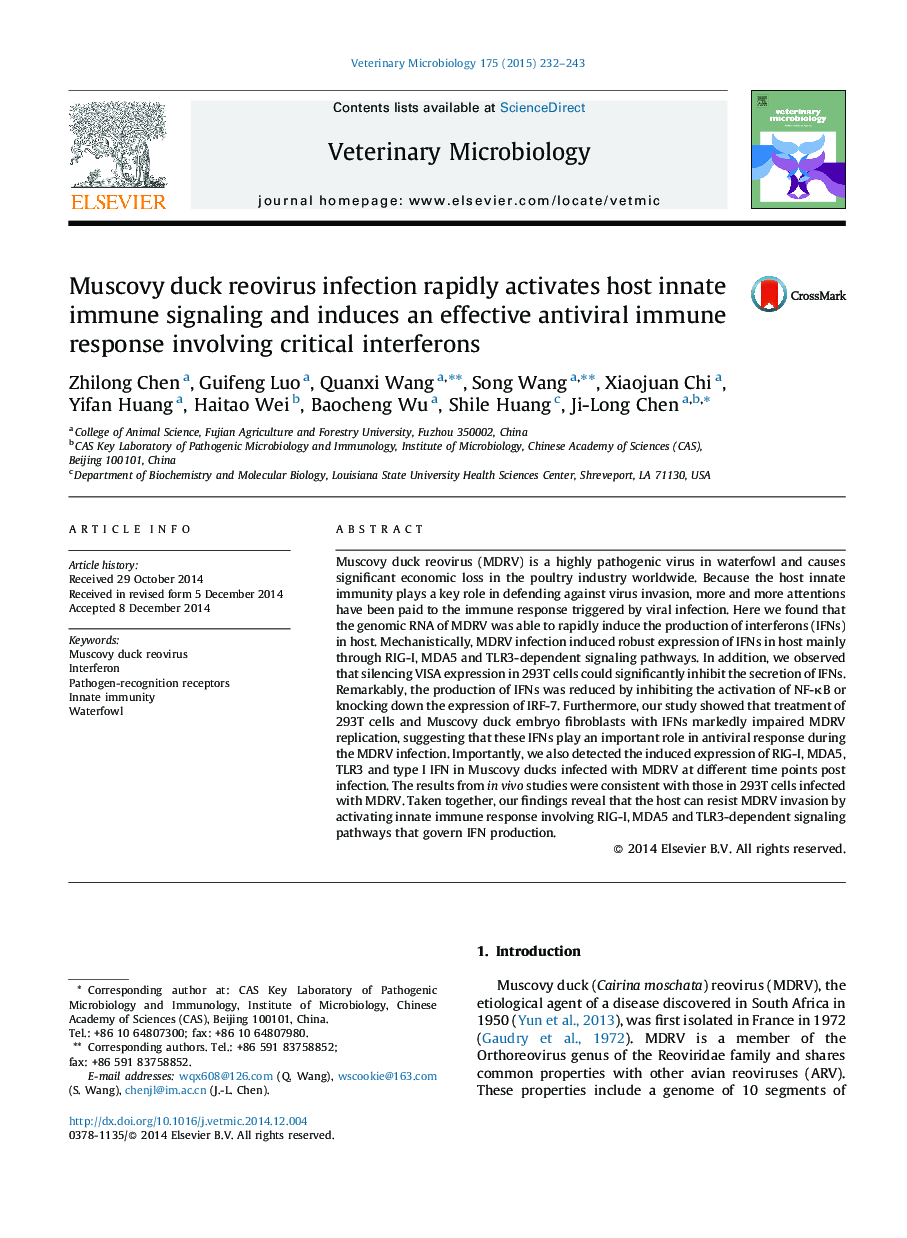| کد مقاله | کد نشریه | سال انتشار | مقاله انگلیسی | نسخه تمام متن |
|---|---|---|---|---|
| 5800056 | 1555354 | 2015 | 12 صفحه PDF | دانلود رایگان |

- Robust expression of IFNs is induced by MDRV infection in vitro and in vivo.
- MDRV genomic RNA triggers host innate immune response during the MDRV infection.
- RIG-I, MDA5 and TLR3 are required for efficient MDRV-induced expression of IFNs.
- IRF-7 and NF-κB play key roles in the MDRV-induced IFN expression.
- IFNs significantly inhibit the replication of MDRV.
Muscovy duck reovirus (MDRV) is a highly pathogenic virus in waterfowl and causes significant economic loss in the poultry industry worldwide. Because the host innate immunity plays a key role in defending against virus invasion, more and more attentions have been paid to the immune response triggered by viral infection. Here we found that the genomic RNA of MDRV was able to rapidly induce the production of interferons (IFNs) in host. Mechanistically, MDRV infection induced robust expression of IFNs in host mainly through RIG-I, MDA5 and TLR3-dependent signaling pathways. In addition, we observed that silencing VISA expression in 293T cells could significantly inhibit the secretion of IFNs. Remarkably, the production of IFNs was reduced by inhibiting the activation of NF-κB or knocking down the expression of IRF-7. Furthermore, our study showed that treatment of 293T cells and Muscovy duck embryo fibroblasts with IFNs markedly impaired MDRV replication, suggesting that these IFNs play an important role in antiviral response during the MDRV infection. Importantly, we also detected the induced expression of RIG-I, MDA5, TLR3 and type I IFN in Muscovy ducks infected with MDRV at different time points post infection. The results from in vivo studies were consistent with those in 293T cells infected with MDRV. Taken together, our findings reveal that the host can resist MDRV invasion by activating innate immune response involving RIG-I, MDA5 and TLR3-dependent signaling pathways that govern IFN production.
Journal: Veterinary Microbiology - Volume 175, Issues 2â4, 25 February 2015, Pages 232-243